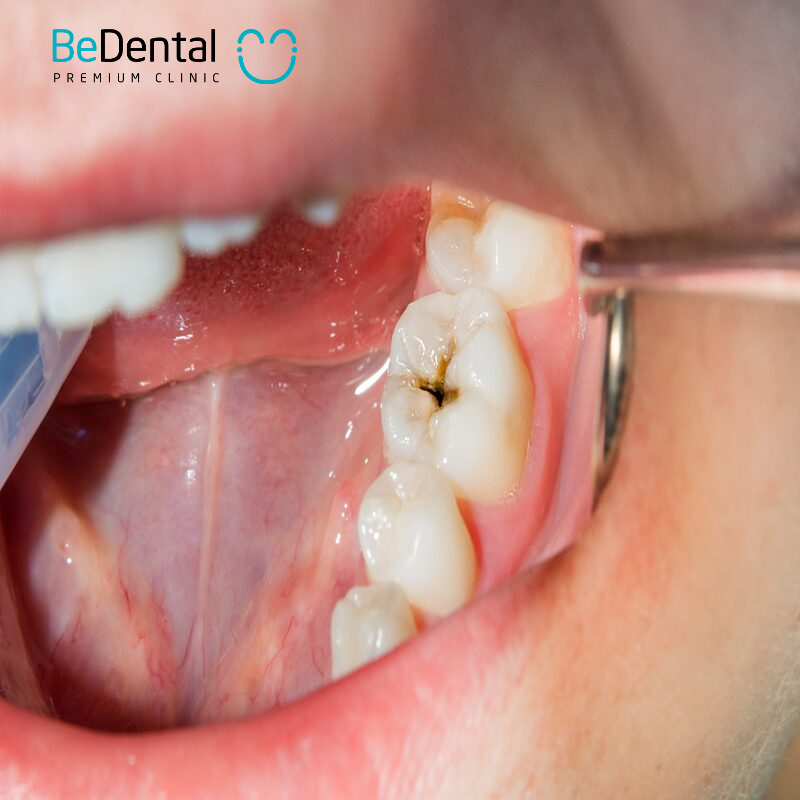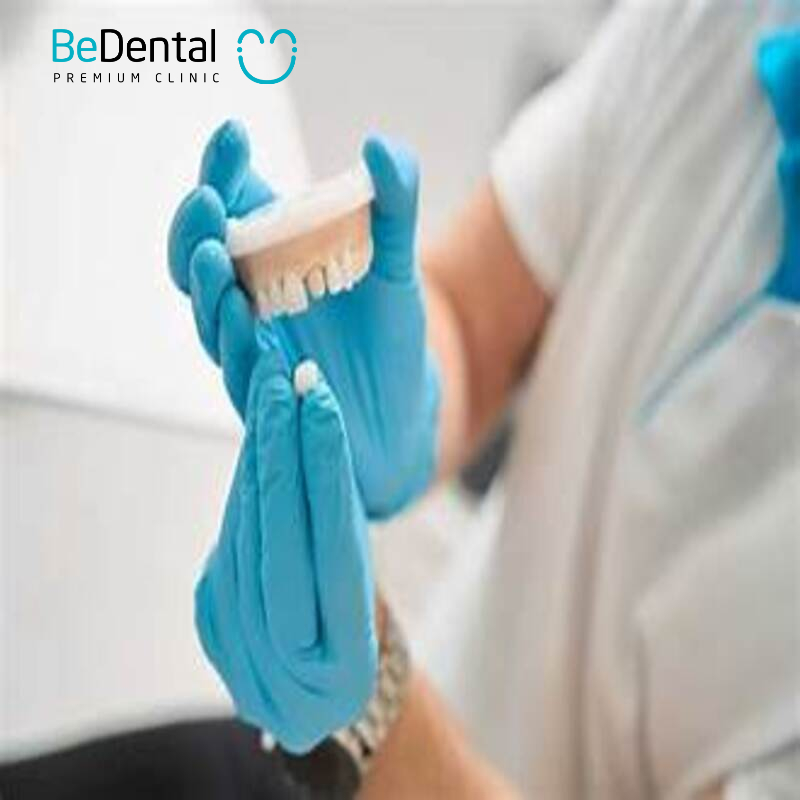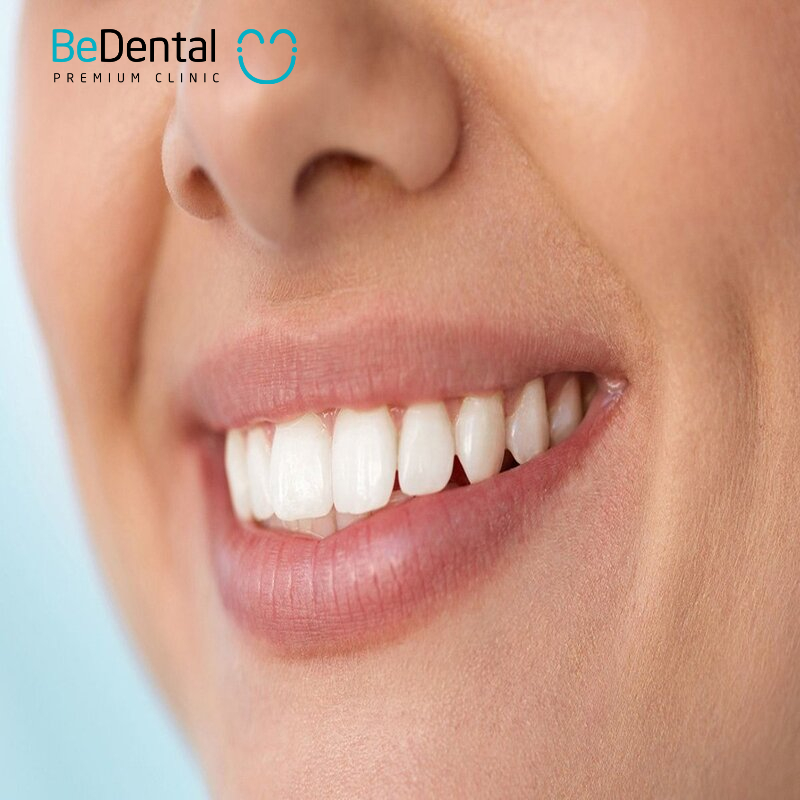Cavities are not just a dental issue; they pose a serious threat to overall health. According to the World Health Organization (WHO), approximately 2.4 billion people worldwide are affected by cavities in their permanent teeth, and over 530 million children suffer from cavities in their primary teeth. If left untreated, cavities can lead to complications not only in the mouth but also affect critical bodily systems, such as the digestive, immune, and cardiovascular systems.
Numerous studies have shown a link between cavity-causing bacteria and chronic diseases such as heart disease, diabetes, and respiratory infections. Therefore, awareness of cavities should extend beyond oral health to be recognized as a holistic health concern. Let’s explore How does tooth decay affect overall health? below.
How does tooth decay affect overall health?
How does tooth decay affect overall health? Cavities can affect oral health in various ways, ranging from pain and discomfort to inflammation and swelling.
Pain and Discomfort- How does tooth decay affect overall health
Cavities often cause pain, especially when exposed to hot, cold, or sweet foods. This pain can range from mild to severe, affecting daily quality of life. The discomfort may hinder one’s ability to focus on work and daily activities, leading to stress and anxiety.

Impact on Eating Habits- How does tooth decay affect overall health
Pain from cavities can make chewing difficult, leading individuals to opt for softer or liquid foods, which decreases dietary variety. Inability to eat properly may result in nutritional deficiencies, impacting overall health and bodily development, particularly in children and the elderly.
Inflammation and Infection- How does tooth decay affect overall health
Cavities can lead to infections in the gum tissue (gingivitis- wikipedia), where bacteria can thrive and cause more severe inflammation if not treated promptly. More seriously, if bacteria from cavities invade soft tissues or enter the bloodstream, it can lead to abscess formation, requiring immediate medical intervention to avoid severe complications, such as widespread infections or cardiovascular issues.
Impact of Cavities on Overall Health
Cavities can affect overall health in several ways, including the digestive system, immune system, and related chronic diseases.
Impact on the Digestive System- How does tooth decay affect overall health?
- Chewing Difficulties Leading to Poor Digestion: Pain from cavities can make chewing food difficult, resulting in ineffective digestion. When food is not adequately broken down, the digestive process in the stomach and small intestine is compromised, leading to issues such as bloating, indigestion, and abdominal pain.
- Dietary Changes and Nutritional Deficiency: Due to pain and difficulty in chewing, many individuals choose softer or liquid foods, leading to a deficiency in essential nutrients like proteins, vitamins, and minerals. This not only affects oral health but also weakens the body’s immune response and recovery ability.

Impact on the Immune System
- Bacteria from Cavities Can Enter the Bloodstream and Weaken the Immune System: When cavities become severe, bacteria can enter the bloodstream through damaged soft tissues in the mouth. This can lead to sepsis, weakening the immune system and reducing the body’s ability to fight off other illnesses.
- Increased Risk of Other Infections: A weakened immune system raises the risk of other infections, from common illnesses like the flu to more severe infections, complicating the body’s recovery process.
Relation to Chronic Diseases
Cardiovascular Disease: Research has shown a connection between oral bacteria and heart disease ( How oral health may affect your heart?). The bacteria in the mouth, particularly those that cause cavities, can enter the bloodstream and cause inflammation in blood vessels, contributing to the formation of arterial plaques. This can lead to cardiovascular disease and other heart-related issues.
Diabetes: Cavities and gum disease can increase insulin resistance, exacerbating diabetes. Conversely, diabetes can increase the risk of cavities due to the reduced ability of dental and gum tissues to heal.
Respiratory Issues: Bacteria from cavities can enter the lungs through the respiratory tract, causing infections like pneumonia, especially in individuals with weakened immune systems or the elderly. Respiratory infections can significantly increase mortality risks in vulnerable populations.
Preventive Measures and Treatment for Cavities
Recognizing the impact of cavities on oral health not only provides a more comprehensive understanding of the importance of oral hygiene but also encourages the implementation of effective preventive measures.
Proper Oral Hygiene
- Brushing Techniques: Brush at least twice a day, in the morning after eating and in the evening before bed. Use a soft-bristle toothbrush and fluoride toothpaste to protect enamel and prevent cavities. Proper brushing techniques include vertical and gentle circular motions, avoiding excessive force.
- Flossing: Use dental floss daily to remove food particles and plaque from between the teeth, where a toothbrush can’t reach. This helps reduce the risk of cavities and gum disease.
- Mouthwash: Antibacterial or fluoride mouthwash can enhance oral health protection and minimize bacteria in the mouth.

Healthy Diet- How does tooth decay affect overall health
- Reduce Sugar and Acidic Foods: Sugar and acids are the primary culprits of cavities. Limiting sugary treats, carbonated beverages, and high-sugar foods like candy can reduce the risk of cavities. Instead, opt for healthier foods like fresh fruits, vegetables, and unsweetened yogurt.
- Increase Calcium and Vitamin-Rich Foods: Foods high in calcium, such as milk, cheese, and leafy greens, help strengthen tooth enamel. Vitamin D aids calcium absorption, while vitamin C supports gum health.
Regular Dental Check-ups and Early Treatment
- Regular Check-ups: Visit the dentist at least every six months for oral examinations and to catch potential issues before they worsen. Dentists can perform deep cleanings to remove plaque and tartar.
- Early Treatment When Cavities Are Detected: If signs of cavities, like white spots on teeth or pain during eating, are noticed, immediate treatment is essential. Treatment options include fillings, root canals, or, in severe cases, tooth extraction to prevent bacterial spread.
BeDental is a reputable dental clinic in Vietnam
BeDental is a reputable dental clinic in Vietnam that offers comprehensive examination and treatment for cavities for patients of all ages. The clinic’s commitment to providing high-quality dental care is evident through its team of experienced professionals, advanced technology, and patient-centered approach.
For those seeking further consultation regarding dental examination services, please visit BeDental’s locations in Hanoi or Ho Chi Minh City. You can also reach us at our hotline: (+84) 934.61.9090 / (+84) 899.555.636 or through our Facebook page, BeDental, for prompt and accurate assistance.




